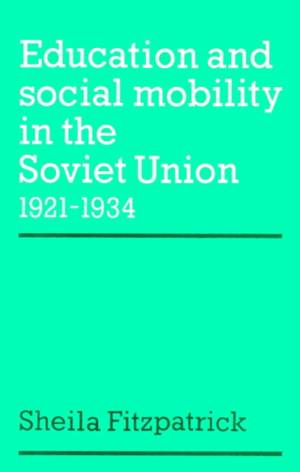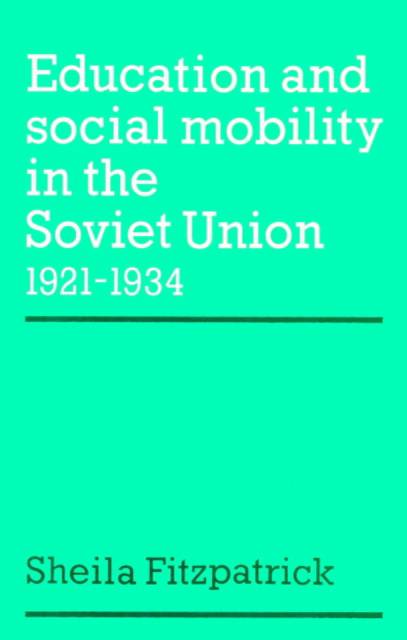
Bedankt voor het vertrouwen het afgelopen jaar! Om jou te bedanken bieden we GRATIS verzending (in België) aan op alles gedurende de hele maand januari.
- Afhalen na 1 uur in een winkel met voorraad
- In januari gratis thuislevering in België
- Ruim aanbod met 7 miljoen producten
Bedankt voor het vertrouwen het afgelopen jaar! Om jou te bedanken bieden we GRATIS verzending (in België) aan op alles gedurende de hele maand januari.
- Afhalen na 1 uur in een winkel met voorraad
- In januari gratis thuislevering in België
- Ruim aanbod met 7 miljoen producten
Zoeken
€ 53,45
+ 106 punten
Omschrijving
This is a history of Soviet education policy 1921-34 that places special emphasis upon the theme of social mobility through education. One of the hitherto untold stories of Soviet history is the making of the 'Brezhnev generation', a cohort of young workers and Communists sent to higher education during the First Five-Year Plan (1928-1932) and subsequently catapulted into leadership positions in the wake of the Great Purge of 1937/38. A focal point of this book is the educational policies which not only produced the 'Brezhnev generation', but also linked Stalin's regime with the massive upward mobility of the industrializing 1930s. The book is the first comprehensive history of Soviet education in the 1920s and early 1930s, and provides a sequel to the author's highly praised Commissariat of Enlightenment. In this, as in the earlier study, the author has used Soviet archival sources not previously available to Western scholars.
Specificaties
Betrokkenen
- Auteur(s):
- Uitgeverij:
Inhoud
- Aantal bladzijden:
- 368
- Taal:
- Engels
- Reeks:
- Reeksnummer:
- nr. 27
Eigenschappen
- Productcode (EAN):
- 9780521894234
- Verschijningsdatum:
- 16/05/2002
- Uitvoering:
- Paperback
- Formaat:
- Trade paperback (VS)
- Afmetingen:
- 141 mm x 218 mm
- Gewicht:
- 458 g

Alleen bij Standaard Boekhandel
+ 106 punten op je klantenkaart van Standaard Boekhandel
Beoordelingen
We publiceren alleen reviews die voldoen aan de voorwaarden voor reviews. Bekijk onze voorwaarden voor reviews.









